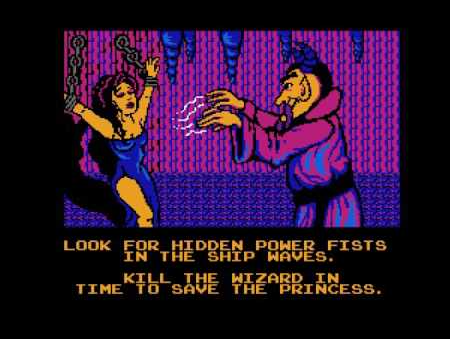Quitting Video Games is Hard but I’ve Learned to Embrace it OR Why Beat a Video Game?
After 35 hours, I quit playing Hollow Knight. This wasn’t an easy decision.
Quitting a game used to be easy. In fact, quitting used to be THE WAY to finish a video game.
See, the idea of actually seeing a game through to the credits is a relatively new concept for me. When I was young, growing up in the NES, Super NES, and Nintendo 64/Sony PlayStation era of consoles, completing a game was a mythical endeavor, like hunting bigfoot.
Game credits were an elusive mystery bordering on so abstract as to be ridiculous. I’d play the same first level of Skull and Crossbones or Kiwi Kraze or Karnov over and over, never once considering that players were meant to progress further. Sure, I’d heard stories of a level two. But a level three, four, or heaven forbid five, well, that’s just make-believe nonsense grandmas cough up between racist rants and half-gumed pudding with medicinal flavor names. Mmmmm Ovaltine Tapioca flavored

And eventually, much like my grandmother, the façade that video games were unbeatable died. Sometime in college, I think, probably between seeing the end credits of Grand Theft Auto 3 and the end credits of ICO, I was struck with the realization that for a few months at least I had been playing games with an intent to actually beat them. That goal just sort of seeped into my gamer mindset without me realizing it.
Playing a game was suddenly no longer just playing a game. I had to have beaten the game to claim that I’d played it. But eventually, sometime after college, the willingness to leave a game unbeaten, unlike my grandmother, returned from the dead.
Recently, I’ve been thinking a lot about why I’ve now become so comfortable with letting a game go unbeaten. Why am I so easily able to refuse the physiological pressure against unresolved mission lists? Why can I put down the latest AAA zombie killing first person shooter?
Quitting a game before it’s completed is actually not easy for the easily influenced human brain to do. In his book Getting Gamers: The Psychology of Video Games and Their Impact on the People who Play Them, Dr. Jamie Madigan cites self-determination theory as a driving force behind mission completion, and therefore game completion. He says that people engage in voluntary behavior (like play) to the extent that it scratches three psychological itches:
- The need to feel competent at what you’re doing (Competence)
- The need to feel like you have meaningful choices when deciding how to do it (Autonomy)
- The need to feel connected and related to others in the process (Relatedness)
So maybe I quit a game before completion when it fails to constantly satisfy self-determination theory, when the game itself fails to motivate me.
But there’s more. Quitting isn’t always about a lack of interest in the game. Quitting can also be about a wealth of other options. I can only stare at the rows of unplayed games on my backlog shelf for so long before one of them eventually persuades me to give it a try. And once that new game is in, the old game I just quit is hard to go back to. Even if the new game is worse, I’ve already committed to stopping the old game, so I’m much more likely to drop the new one in favor of another new one then go back to the old one. That commitment is another strong psychological force. Our brains have an amazing ability to make us feel good about the decisions we’ve made.
But even then, isn’t it the lack of the first game’s ability to motivate me that’s even allowed me to entertain playing a different game? Isn’t the original game’s lack of quality still at fault for me quitting?
Possibly. But I do also have to consider that I’m just not good enough at the game to finish it. General conversation about video games tends to position difficulty as central quality. Even easy games are defined as, well, I just naturally described them as “easy.” This makes sense as “games” are thought of as a competitive endeavor, and competitions are events of skill where, even though individual participants judge ease on their own, competition, skill, and degree of difficulty are inextricably connected.
But video games reflect such a wide spectrum of genres now that I’d love to see discussions of difficulty stop being the norm. Annapurna Interactive, for example, publishes some of the best games I’ve ever played and most of those wouldn’t even reference difficulty as a descriptor because those games aren’t interested in challenging a person physically; they are more concerned with offering an emotionally interesting experience.
Some genres do, though, embrace difficulty, and that’s okay. I put 35 hours into Hollow Knight, and loved every single minute, until one boss encounter proved too difficult for me, so I quit. Nobody would call Hollow Knight a bad game.
But then I have to ask myself, if the game truly delivered on self-determination theory, would the difficulty no longer be an obstacle toward completion? Would I have pushed through the tough boss fight if the game delivered perfectly on motivation by way of competence, autonomy, and relatedness? I beat Celeste. Is it, therefore, a more successfully crafted game than hollow knight?
Of course it’s not that easy. Of course I have to consider that a person’s taste in games, and perhaps their measure of resolve related to self-determination theory, is subjective. And it pains me to consider that. I want to believe in a world where nothing is subjective. Subjectivity, I want to believe, is just magic that science doesn’t understand yet.
And I understand that’s a stupid dream. Both because it’s likely impossible to attain even if it might be conceptually viable, and because that would be a shitty world. Imagine a world where the science of motivation is perfectly understood and ubiquitous among video games. Everyone would be compelled to complete every game, meaning we’d all develop crippling game addiction or we’d recognize that possibility and swear off games entirely. The nuance of game experience would be eradicated.
I don’t want to live in a world without video games. I love playing video games even if I don’t finish every one of them that I play.
So, I could quit playing a video game because it’s too hard, or because other video games pull my interest away, or because the game I’m playing is just bad or boring. And over my life I’ve waffled from only ever quitting a video game to the opposite extreme that every video game must be beaten.
But now, I’m at a happy point where I see quitting a game not as a problem but as recognition of the discord between me and the ideal player that the video game requires. Quitting a game is a reaffirmation of the wonderful variety of humanity.
Music credits
- Bossa Antigua by Kevin MacLeod, Link: https://incompetech.filmmusic.io/song/3454-bossa-antigua, License: http://creativecommons.org/licenses/by/4.0/
- Raving Energy by Kevin MacLeod, Link: https://incompetech.filmmusic.io/song/5029-raving-energy, License: http://creativecommons.org/licenses/by/4.0/


